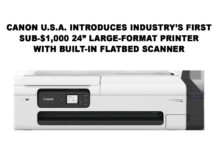I believe that banking institutions are more dangerous to our liberties than standing armies. – Thomas Jefferson
It may appear to be a sound strategy today: take on as much debt as possible at current interest rates, which are the lowest we’ve seen in decades. However, the decision to finance is a little more complicated than simply taking advantage of available money at low teaser rates. When financing business acquisitions today, you need to take a hard look at the state of technology. For example, say you want to purchase that high tech piece of machinery which you’ve lusted over since you saw the glossy ad for it. Although it may be the best there is currently, how long will it generate financial benefits to you in terms of increased revenue or cost savings? When you consider that the shelf life of technology is continually decreasing, your shiny piece of machinery is probably obsolete before you take delivery!
I’m not suggesting that you forego the possibility of improving your operation, but make sure you avoid the traps of financing short-term benefit with long-term debt. When the honeymoon is over, you’ll still have the bills to remind you. As a financing strategy, if the value generated by the asset being financed is short-term, i.e. perhaps less than three years (although its utility to you may be longer, which would be really good), it’s best to match the financing term for that piece of machinery to the additional income generated by it. In plain language, if it’s good for three years, then the financing should be no longer than three years. If you can’t pay it off within the period that it pays for itself, then you’ll be paying for it long after it’s gathering dust, or worse paying to have it repaired because we all know that it’s prudent to throw good money after bad! (Note the sarcasm).
I would finance a hammer with long-term debt in a second. Think about it. It’s a low tech device that has a long life, it’s useful for many purposes, reliable, and not likely to break down when needed. It may have little residual value but longevity and utility make up for that. Compare that to a flip phone. You don’t remember what that is? See what I mean?
The financing agreement, whether by loan or lease, contains many variables, which you may be able to control. In financing that new piece of machinery over a shorter term, you’ve reduced the risk for the lender because repayment will occur sooner. That has a value and should be reflected in the terms of financing, perhaps in a reduced interest rate or freebies thrown in to sweeten the deal.
In financing with a short repayment term, you may be inclined to pay a slightly larger down payment depending upon what you can afford. This extra equity in the acquired asset reduces the lender’s/lessor’s risk. You may consider a repayment plan with a slightly larger regular payment or period lump sum payments. You own the machinery faster, and eliminate your debt burden faster.
Time is money, and when it comes to financing, the sooner you can eliminate the debt burden, the sooner you’ll sleep more comfortably. There is risk in assuming burdens that extend over a long period of time. Anything you can do to reduce or eliminate that uncertainty has a value.
Another possibility and often used strategy is to borrow against one asset in which you have equity, to finance another. For example, many business owners use a home equity line of credit to reduce interest costs and extend the term of financing arrangements. The machinery is purchased outright, and the loan is secured by your home. This presents a number of problems, not the least of which is the issue of personal guarantees. This may end up becoming a trap into which many business owners will find themselves in years or months to come, if they don’t match the term of financing to the lifetime of the asset being financed, and stick to the repayment term. That requires discipline, and it may be a dangerous game, unless you’re financing a hammer.
I would love to hear from you and invite your questions and comments. You can reach me by e-mail at skca@idirect.com. With three decades of experience as an accounting professional, consultant to small business and business owner, there may be a few things I can help you with. Call me. Best wishes, Sid.





